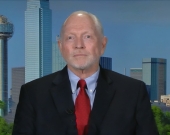Brantly Womack Professor of Foreign Affairs for Gulan: There are certainly economic differences of interest between the USA and China, and so tension is to be expected
September 15, 2018
Exclusive Interviews

Brantly Womack Professor of Foreign Affairs and holder of the C. K. Yen Chair at the Miller Center. Author of Asymmetry and International Relationships (2016); China among Unequals: Asymmetric Foreign Relations in Asia (2010); China and Vietnam: The Politics of Asymmetry (2006); Foundations of Mao Zedong’s Political Thought, 1917-1935; co-author of Politics in China (3rd ed.); editor of Borderlands in East and Southeast Asia: Emergent Conditions, Relations and Prototypes (2017); Rethinking the Triangle: Washington-Beijing-Taipei (2016); China’s Rise in Historical Perspective (2010); Contemporary Chinese Politics in Historical Perspective, Media and the Chinese Public; Electoral Reform in China; author of more than one hundred journal articles and book chapters on Asian politics, including articles in World Politics, World Policy Journal, International Affairs, China Quarterly, Pacific Affairs, and China Journal. Fulbright Scholar, Woodrow Wilson Fellow, Mellon Fellow; recipient of numerous research grants. Honorary professor at Jilin University (Changchun, China), and at East China Normal University (Shanghai, China). Current research interests include asymmetric international relationships, the relationship of public authority and popular power in China; provincial diversification in China; domestic politics and foreign policy of Vietnam; China’s relations with Southeast Asia. In a written interview with our Magazine, He answered our questions regarding some significant issues like pursuing trade diplomacy by Mr. Trump’s administration and the trade war between USA and China as the following:Gulan: What is your overall evaluation of Mr. Trump’s Administration foreign policy, especially with regard to employing economic pressure for achieving diplomatic achievement, what is called “trade diplomacy”?
- Professor Dr. Brantly Womack: President Trump’s tactic of creating uncertainty about American foreign policy has the short term advantage of securing concessions, but it has two long term disadvantages. First, others—including allies—will hedge against the U.S. in order to minimize risk. The United States may not be losing friends yet, but friendship is ebbing away. Second, by not abiding by international norms, the U.S. is likely to become mired in an unpredictable series of crises that it is ill-prepared to understand or to manage. And others will not rush to help.
Gulan: How do you characterize the relations between USA and China? To what extent China as a rising power poses real challenge to United States?
- Professor DR. Brantly Womack: Relations between the USA and China do not face a specific crisis other than the tariff war, but both sides are taking a more hostile attitude, especially the USA. On the other hand, many states are improving their relationship with China because they see it as more reliable, and because China’s policies such as the Belt and Road Initiative (also known as One Belt One Road) are attractive.
Gulan: What do you make about trade war between China and America in terms of its causes and consequences?
- Professor DR. Brantly Womack: There are certainly economic differences of interest between the two, and so tension is to be expected. However, an escalating trade war is a race to the bottom. Neither side can admit defeat, so both will continue to lose until a face-saving solution can be achieved.
Gulan: Obviously China has announced that it will not abide by the sanctions that USA is going to impose on Iran energy sector, will this lead to more tensions between China and America?
- Professor DR. Brantly Womack: The Trump administration abandoned the Joint Comprehensive Plan of Action. China has a history of respecting such agreements. Abiding by the agreement will certainly not help its relations with the U.S., but it might help other relationships, including, most obviously, with Iran.
Gulan: To what extent USA needs China’s cooperation for dealing with some difficult challenges in Asia- especially the crisis of North Korea-?
- Professor DR. Brantly Womack: Thanks to the initial gestures of President Moon of South Korea and President Kim of North Korea regarding the Olympics, a series of summit meetings has taken place over the last eight months. The most spectacular was the meeting in Singapore between Kim and Trump, but the further meetings Moon and Kim and of Kim and President Xi of China, as well as the upcoming meeting of Kim and President Putin of Russia are, taken together, possibly more important. If Kim can hold to a more peaceful course of relations with all of his neighbors it renders the American hostility less significant. But what Kim must remember is that for all of his partners, including even South Korea, the U.S. relationship is more important. So he must avoid posing a choice between himself and Trump. Also, all of his partners are committed to a denuclearized Korean peninsula.















